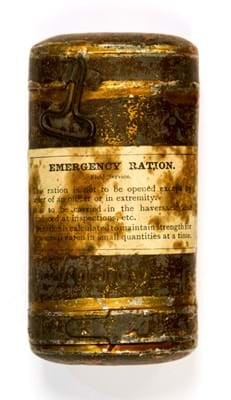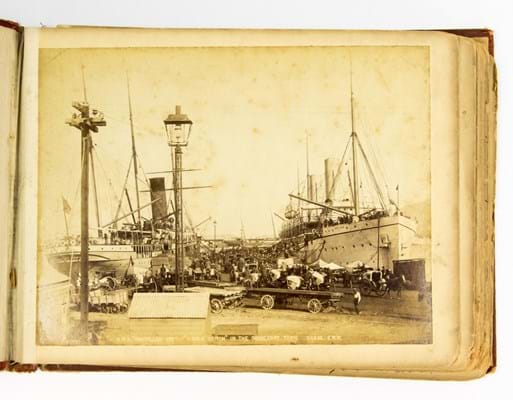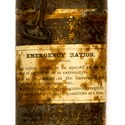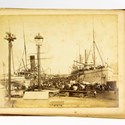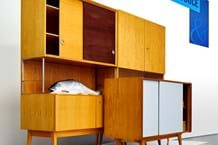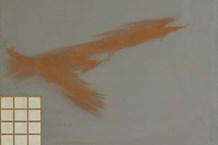Hundreds of thousands of troops from the British Empire served in the (Second) Boer War (1899-1902) – and hundreds of thousands of troops require a lot of grub.
Among a Boer War archive discovered during a valuation day in Lichfield, Staffordshire, was a food vacuum tin can of emergency rations made by pioneering firm Donkin, Hall & Gamble.
The invention had a major impact on how food could be delivered to troops engaged in conflict. Supplies could be preserved and protected from damage before consumption. This tin consists of emergency rations contained in two tins inside: a meat ‘dinner’ of concentrated beef (pemmican) in one end and cocoa paste in the other. It was designed to sustain a soldier for 36 hours (if eaten in small quantities) while on active service during the Boer War.
An instruction reads: “This ration is not to be opened except by order of an Officer, or in extremity.”
"Kept in a cupboard"
The items belonged to an unknown soldier and are now on offer in the Hansons auction in Derbyshire on March 21, estimated at £200-300. Auction house director Charles Hanson says: “It was an archive kept in a cupboard in Lichfield belonging to our client’s father, who was a collector.”
The first mass production of tin cans of food was by engineer Bryan Donkin in a factory based in Bermondsey, south London. They had initially been supplied to the Royal Navy in 1813.
The firm became Donkin, Hall & Gamble and tin can production moved to Ireland in 1830 under Donkin’s successor, John Gamble, although Donkin’s engineering company stayed in Bermondsey until 1902.
Bovril was also a major supplier of tinned food to British troops in the Boer War. ‘Bully beef’ was a mainstay of the diet.
Chocolate treat
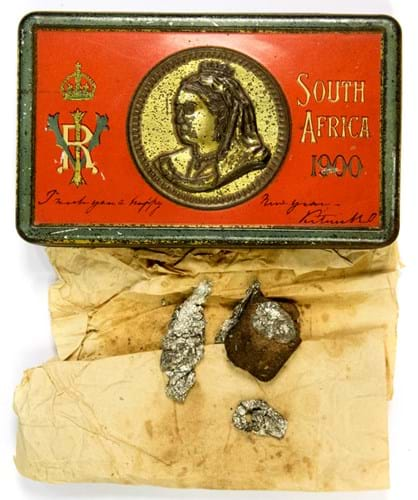
British Boer War chocolate - part of an archive up at auction at Hansons on March 21 estimated at £200-300.
Also within the collection of artefacts is a tin box containing remnants of chocolate which Queen Victoria sent to her troops serving in South Africa. It was intended that every soldier and officer should receive a box with the inscription South Africa 1900.
The tins had rounded corners for ease of storage in a soldier’s knapsack and each contained a half-pound of vanilla chocolate. There are still remnants of chocolate in this tin and the tin foil encasing it.
The war lasted just over two and half years and within a photograph album discovered in the archive with the ration tin are some images of the British celebrating with beer after defeating the Boers, together with other vivid images including Boer women seen in their homes.
Hanson adds: “The archive tells us so much about the daily life of a British soldier who served in the war. We suspect the photograph of a young gentleman on a card is probably the serviceman to whom this archive belonged too.”


